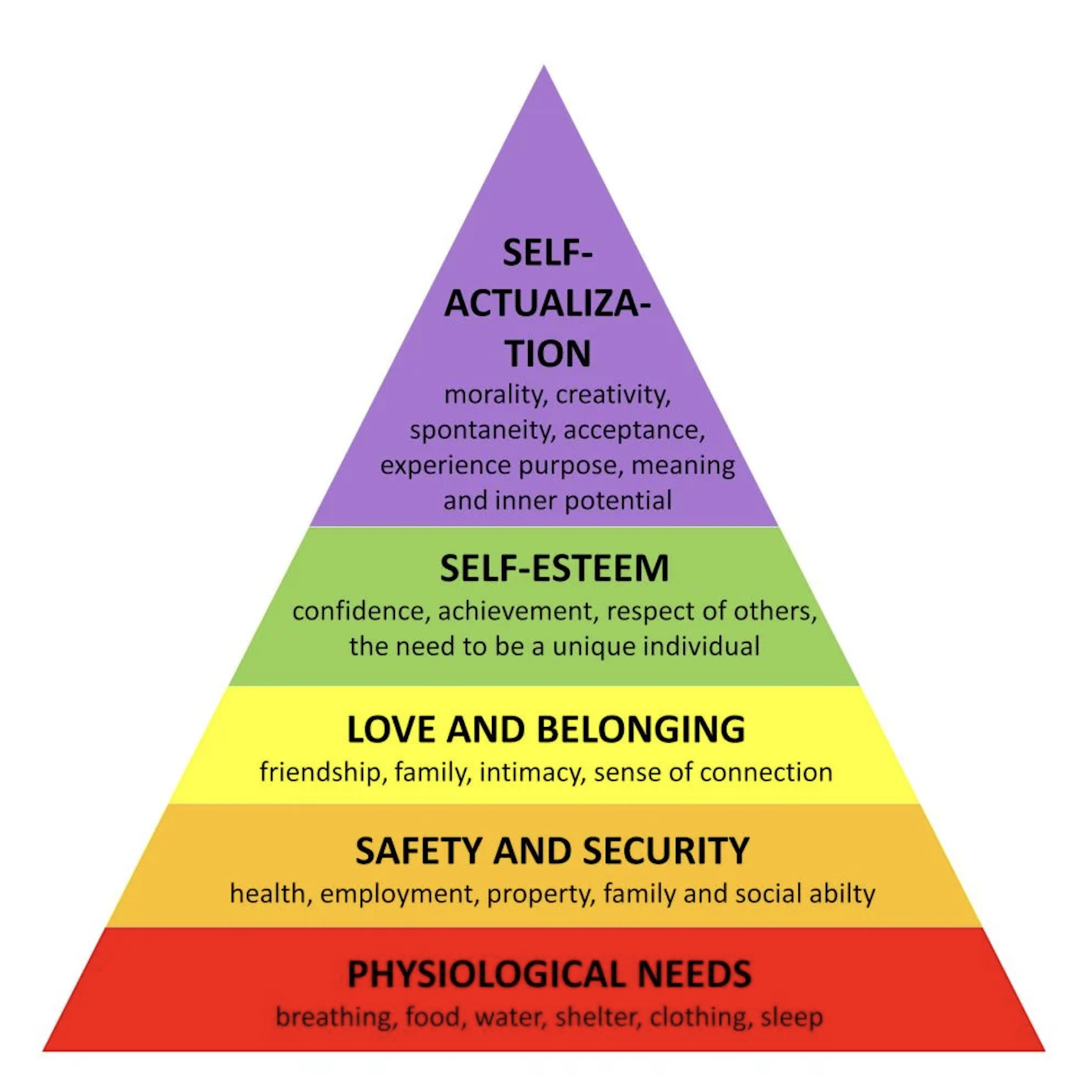As humans, we are multifaceted beings.
We all have different wants specific to our individual circumstances, but at the bottom-line, all of us have the same core psychological needs.
Until and unless we fulfill those core needs, it’s impossible to work towards a life of self actualization and fulfilment.

(T.M. Chan 2022, Maslow’s Hierarchy of Needs)
Abraham Maslow provides an effective demonstration of psychological needs. According to his pyramid, the needs at the lower level must be fulfilled before needs at the higher level are fulfilled.
At the base level, we have needs for breathing, food, water and shelter.
And then it moves to safety and security, love and belonging, self-esteem and actualization, etc.
Disturbances at any of these stages/levels can affect our self-discipline.
For example…
If you don’t have access to healthy food options on a daily basis, you’ll feel uncomfortable and this in turn will cause your whims to take over.
Likewise, if you don’t have a consistent or stable income stream, it will affect your ability to think long-term and engage in actions that will help develop discipline.
Similarly, if you don’t have a loved one (or at least the desire to meet with a loved one) or someone you can connect with on your goals/aspirations, it can cause cynicism and prevent you from taking any mindful action.
The same goes for anything that corrupts your self-esteem – a failure, a fear or a frustration.
In order to be disciplined and really work on self-actualizing yourself, you have to get all of the other needs met.
It’s when you create a purpose to fulfill the quota of all the various psychological needs in Abraham’s Triangle, you’ll be able to stick to routines and self-discipline on a long-run.
So going back to the triangle:
- At the bottom, we have physiological needs
- Safety and security
- Love and belonging
- Self-esteem
- Self-actualization
Sources:
- Chan, T.M., 2022. Maslow’s Hierarchy of Needs. Education Theory Made Practical, Volume 4.
- Photo by Štefan Štefančík on Unsplash
